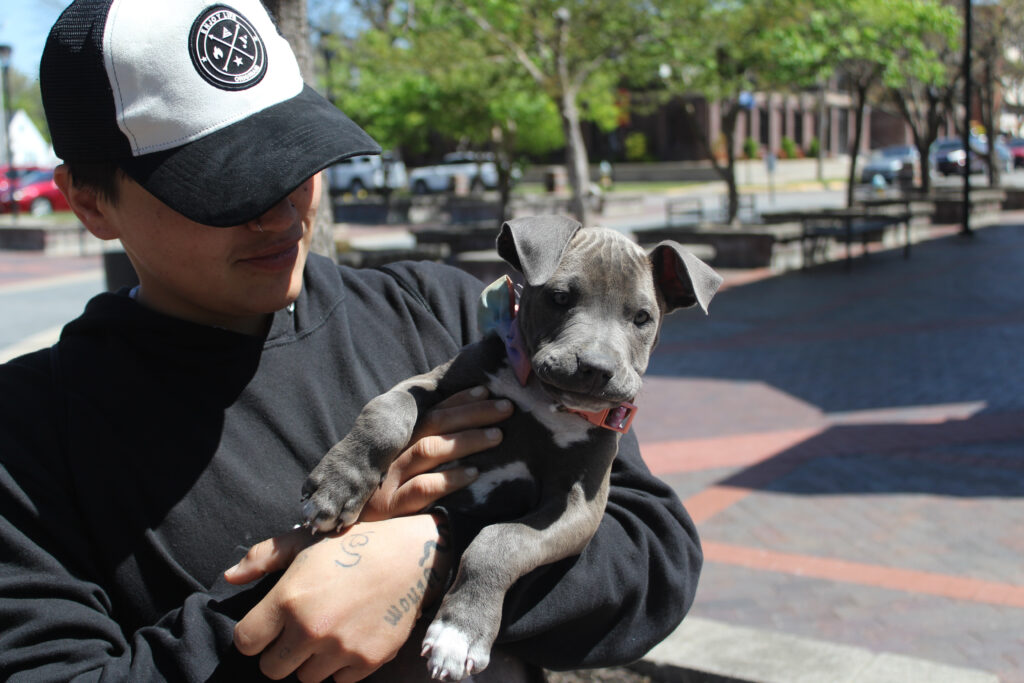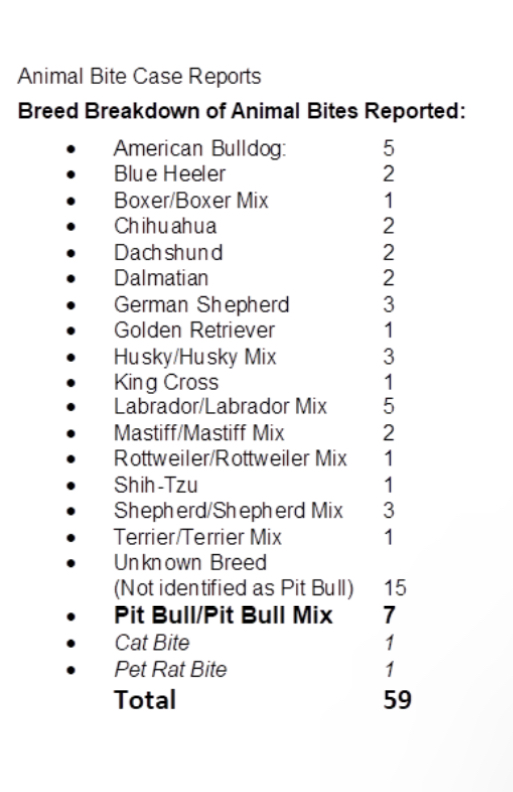Decades-old pit bull ban leaves residents few options
by A.J. Kohler

PITTSBURG, Kan. — Meeka and her owner, Raven Edwards, are inseparable.
“I hate socializing and going out in public,” Edwards said. “She just kind of eases the anxiety and allows me to push through it.”
Meeka is a registered service animal. But there’s one issue — she’s a pit bull, and pit bulls are banned in the city of Pittsburg.
The ban has been in place since 1986 and has placed a significant strain on the Southeast Kansas Humane Society, where about one-third of the dogs are pit bull mixes. Their average stay at the shelter ranges from 18 months to two years.
Nearby cities may offer a solution to Pittsburg’s challenge. Parsons and Fort Scott have repealed their pit bull bans and adopted broader “vicious dog” ordinances.
“The issue we were having wasn’t with pit bulls,” said Parsons City Attorney Ross Albertini. “It was more so with people taking care of their dogs. So they removed the breed-specific side of it and increased the penalties for biting dogs.”
Shelters prefer these ordinances because they don’t target specific breeds.
“If a dog is declared vicious, it doesn’t have to be euthanized — though that is an option,” Albertini said. “The animal could be returned to the owner with stipulations, like requiring the dog be kept in a pen, or it could be euthanized.”
Dogs labeled vicious are also microchipped by the city.
Since the ordinance went into effect in Parsons, the number of reported dog bites has remained steady. It didn’t solve the problem of dangerous dogs, but it did remove the breed-specific burden placed on animal shelters and owners by the ordinance’s previous language.
Breed-specific bans like Pittsburg’s are also hard to enforce — one of the key reasons Parsons overturned its own. The county also lacked the resources to properly enforce the ban.
Fort Scott followed the rest of Bourbon County in repealing its pit bull ban and replacing it with a broader dangerous dog ordinance.
“If you don’t enforce a policy, why have it?” said Assistant Bourbon County Attorney Justin Meeks.
So why hasn’t Pittsburg made a change?
The city has faced public pressure in the past, including meetings with the Southeast Kansas Humane Society and a 2017 petition that gathered more than 1,000 signatures.
Between July 2018 and August 2021, data from the Pittsburg Police Department showed that pit bulls and pit bull mixes were involved in the most reported bite incidents — seven — despite the fact the breed was supposed to be banned in city limits.

Still, city officials say no changes are currently being considered.
“The Police Department is unaware of any current alternatives being sought to the city’s pit bull ordinance,” said Pittsburg Police Maj. Ben Henderson. “However, reviews of ordinances from other municipalities can help determine and fine-tune approaches that are better tailored for our community.”
The current ban relies heavily on community reports, which has led to instances of misidentification. Some residents say it also fuels neighborhood disputes.
In one case, a Pittsburg family was trying to open a daycare in their home, and their neighbors were against it, so one of the neighbors reported their dog for allegedly being a pit bull. The dog was removed and sent for DNA testing. The situation was resolved when the city approved a license for the day care to open.
Critics say removing the ban would prevent such conflicts and ensure that pets aren’t unfairly targeted based on appearance.
There is some good news for Raven Edwards and her pit bull Meeka. Because Meeka is a designated emotional support animal, she is exempt from the city’s ban.
Still, Edwards hopes the city reconsiders the blanket ban because, she says, it’s individual dogs rather than breeds that are dangerous. She recommends others learn from personal experience as well.
“Just find out how the breed is themselves one-on-one,” she said. “This breed isn’t as bad as people make them out to be.”




